Temim Fruchter is a queer nonbinary anti-Zionist Jewish writer who lives in Brooklyn, NY. She holds an MFA in fiction from the University of Maryland, and is the recipient of fellowships from the DC Commission on the Arts and Humanities, Vermont Studio Center, and a 2020 Rona Jaffe Foundation Writer’s Award. She is co-host of Pete’s Reading Series in Brooklyn. Her debut novel, CITY OF LAUGHTER, is out now on Grove Atlantic.
I had the opportunity to interview Temim, which you can read below.
First of all, welcome to Geeks OUT! Could you tell us a little about yourself?
Sure! I’m Temim. I’m a Jewish queer nonbinary femme writer. I live in Brooklyn with my partner and our two cats, Kermit and Oscar. I’m an Aquarius with a Scorpio rising and Libra moon and I’m a hard Ennagram 4w3. I love noodles in all of their forms and I am a shameless eavesdropper.
What can you tell us about your debut book, City of Laughter? What was the inspiration for this project?
I often describe the book as the speculative queer history of an Eastern European Jewish family that, in some ways, resembles my own. It is, of course, fiction, but to write it, I started with the timeline and geographies of my own family. I think the inspiration for the book came from several places, but I’ll tell you about two. The first, when I was playing music in a band, and we were playing a show in Warsaw. On a day off, we drove to Ropczyce, where my great-grandparents’ shtetl once stood. I had two feelings at once: The first, that this place was teeming with ancestral spirits. And the second, that it was just grass and trees and a road, nothing magical at all. I think, in some ways, both feelings were true, and I wanted to write into that duality. The second was how I started to feel looking at old glamorous photos of my maternal grandmother as I came into my identity as a queer femme. There was a starlet quality to those old pictures that felt connected to my own femmeness, and while this is certainly not a book that posits that my real ancestors were all secretly queer, I wanted to embark on the project of imagining, what if they had been? After all, queer and trans histories are so often hidden from our view, so it would likely be impossible to know, even if they had been. This imaginative project was the space I set out to play in as I wrote this novel
City of Laughter seems to be a blend of different genres from historical fiction to speculative, all intertwined through the subject of Jewish folklore. What do you think drew you to writing the book this way?
At certain points, writing this book felt like tuning into different frequencies. Like when you’re driving and flipping through radio stations, and one that came in fuzzy three miles back suddenly comes in clear. The story I wanted to tell in City of Laughter required tuning in to different frequencies for me as the writer, and I wanted readers to experience this, too. So often, a story is not linear, and not even just vertical or horizontal, but multi-directional. In this book, I wanted story to come at the reader from all sides, all directions, all frequencies, all timelines. This necessitated a sort of polyphonic and multi-pronged approach – sometimes, a letter; sometimes, a spell; sometimes, an old folktale; and sometimes, a contemporary litany of queer desires. I wanted the book to feel crowded with lives, with frequencies, and with narrative approaches. This crowdedness felt particularly Jewish and particular queer to me, too.
As a writer, what drew you to the art of storytelling in general?
I was raised on stories, and storytelling, specifically! I have the warmest memories of sitting around the Shabbos table, full of chicken soup and challah, and my parents reading to us from a compendium of Jewish folktales, or telling us about a strange or obscure interpretation of a story from the Torah. The vibes were extremely oral tradition and I was always telling stories or listening to stories myself. In fact, one of my earliest memories is sitting on the kitchen floor under the table eating cheerios and narrating my own life to myself in the third person.
How would you describe your writing process?
In Matt Bell’s brilliant book Refuse to be Done, he makes a suggestion about novel-drafting he calls “writing the islands.” That is, there is no need to write in a linear way; instead, feel free to write the scene or the interaction or the paragraph or even the sentence that’s calling to you, and then the next. Write what you can clearly see, and you can submerge for the rest later, and build in the connective tissue. (Please go read his book, where he writes about this much more beautifully!) This is very much how I write – I start with a bunch of disparate islands, and then I work to thread them together. I don’t outline much – I just feel my way into the mysterious woods of a story. (Maud’s mom quote). And because I have a 9-5 day job, I keep the morning hours (before 9) sacred and dedicated to writing. I try to touch the project every day, even if it’s just writing a sentence of changing a word.
Growing up, were there any stories in which you felt touched by/ or reflected in? Are there any like that now?
I adored the All of a Kind Family series – the Sydney Taylor books about five Jewish sisters growing up on the Lower East Side in 1912. I wasn’t surprised to learn that the books were born from all of the childhood stories Taylor would tell her own real-life daughter, and wanted to write down for her. They felt like those kinds of stories. It was interesting to read them and to feel kind of nostalgia that didn’t exactly belong to me but also did, and that I didn’t yet understand.
As a writer, who or what would you say are some of your greatest creative influences and/or sources of inspiration in general?
I mean funnily enough, one of my greatest sources of inspiration as a writer is music. I come from a very musical family, and played in a band for years myself, and so I find the seeds of many of my stories while I’m deep in a song or an album. In terms of specific writers, there are too many time, but writers whose work I spent time with as I was working on City of Laughter include Alexander Chee, Helen Oyeyemi, Victor LaValle, Nicole Krauss, Jeanette Winterson, Marie-Helene Bertino, and Andrea Lawlor. I was in search of queerness of form, and of the various kinds of magic – from imperceptibly subtle to garish and grandiose – that can be made in both the content and the construction of a novel, particularly one that draws on other texts or lore.
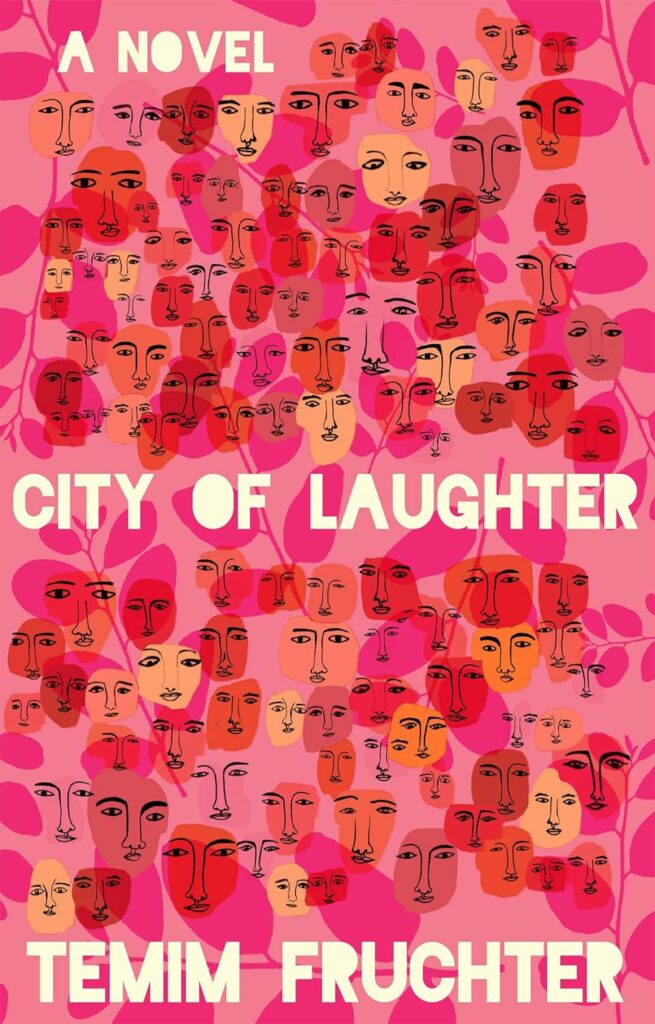
What are some of your favorite elements of writing? What do you consider some of the most frustrating and/or difficult?
I mean I love the big dreaming part of it best. But I also love to massage a sentence. To take a sentence that is trying to express something and work it until it feels rhythmic, precise, shimmery. I also, unexpectedly, love some of the really mathematical aspects of revision. Cutting a draft down to 1000 words, for example – it’s almost meditative. Or doing a line-by-line revision, which I’ve often likened to adding another coat of paint to a room. It’s slow, it’s painstaking, but by the end, the effect is holistic.
In terms of frustrating? I think it’s very hard for me to reenter a draft that feels like it’s calcified. Once I’m inside of the revision, I’m in it, but until then, I tend to circle the thing for days or weeks or even months like I’m gearing up for a fight instead of a creative act.
Aside from your work, what are some things you would want others to know about you?
Especially right now, I want to be loud about the fact that I’m an anti-Zionist Jew, and I’m grateful to all of those fighting and organizing and protesting for an immediate and permanent ceasefire in Gaza, and ultimately, a free Palestine. Grateful, too, to the writers I’ve found these last months who are also in solidarity – it’s been beautiful to build community this way, and even though the internet can be a really mixed bag, it has helped us find one another. It’s a devastating time, as we witness genocide unfolding before our eyes, and the only thing making me feel hopeful is a growing movement for liberation all around the world.
What’s a question you haven’t been asked yet but that you wish you were asked (as well as the answer to that question)?
To be honest, I have been asked excellent questions, and do not feel lacking in that department! But I will say, something I haven’t been asked about is the significance of the curlew, which plays a major role in the folklore of the book. I’ve spent a good amount of time thinking about Claude Cahun, a French Jewish surrealist photographer, writer, and queer non-binary Nazi resistor. Claude and Claude’s partner, Marcel Moore, referred to their relationship as “singular plural” – they were lovers and collaborators, sometimes blurring the lines between them in their work and lives. Cahun had previously used the last name “Courlis,” a direct reference to the curlew, a bird that moves and cries in the plural, and that is impossible to sex. As a tribute to Cahun, I have a section narrated in the first person plural, by an inseparable chorus of curlews. Cahun also helped inspire the figure of the narrator of this book.
What advice might you have to give for aspiring writers?
My favorite advice is very simple: Just write into the joy. Write what you’re excited about, write where the energy is, write in a manner that excites you. There will be phases of any writing project that aren’t necessarily fun, but if there is play to be had, you should absolutely have it!
Are there any other projects you are working on and at liberty to speak about?
I will say that my next project is much more directly informed by my time playing in a touring rock band.
Finally, what books/authors (including LGBTQ+ and/or Jewish) would you recommend to the readers of Geeks OUT?
So many! Way too many to name. A handful I’m particularly excited about that come out this year or next: Emma Copley Eisenberg’s HOUSEMATES, R.O. Kwon’s EXHIBIT, Alexandra Tanner’s WORRY, Gina Chung’s GREEN FROG, Jiaming Tang’s CINEMA LOVE, Grace Shuyi Liew’s MOST BEAUTIFUL THINGS, and Jemimah Wei’s THE ORIGINAL DAUGHTER.

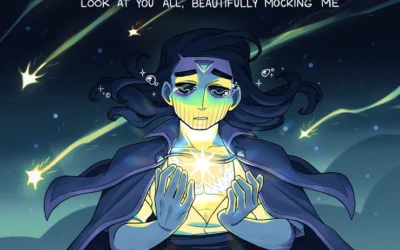
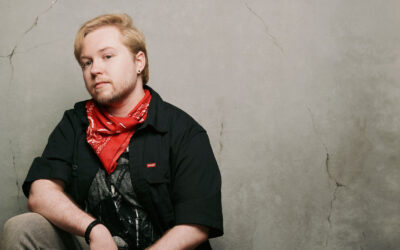
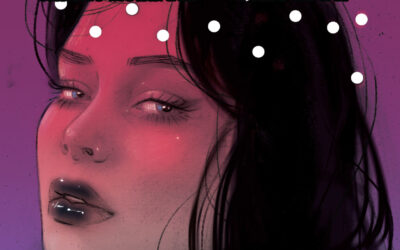
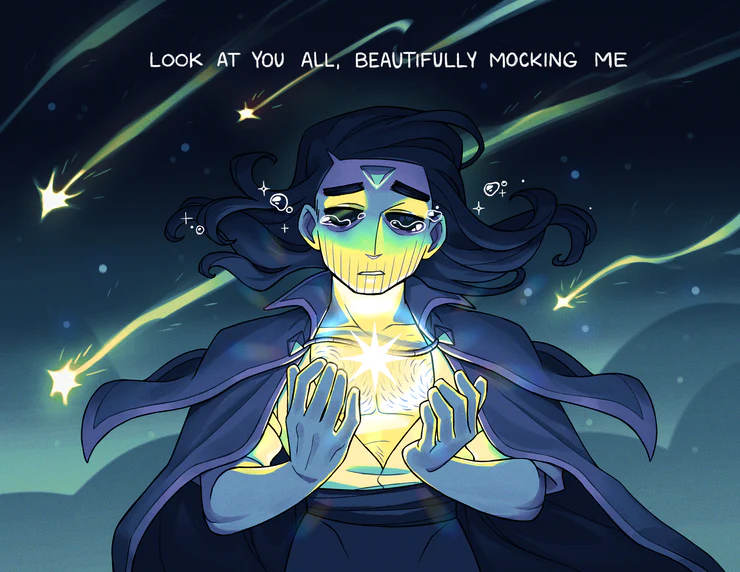
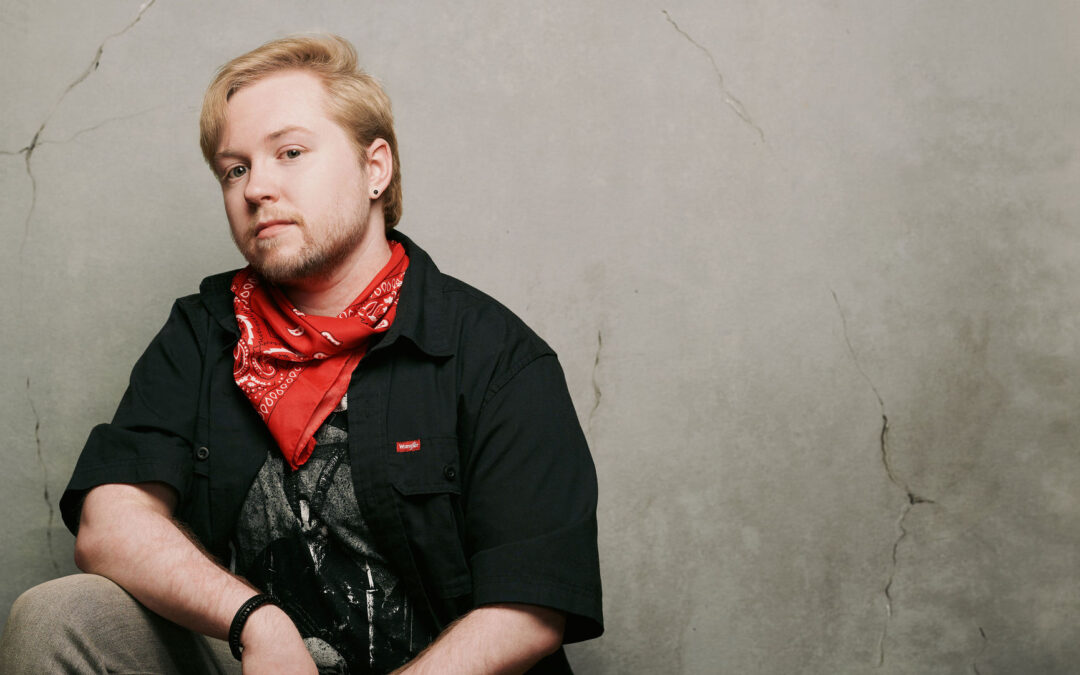
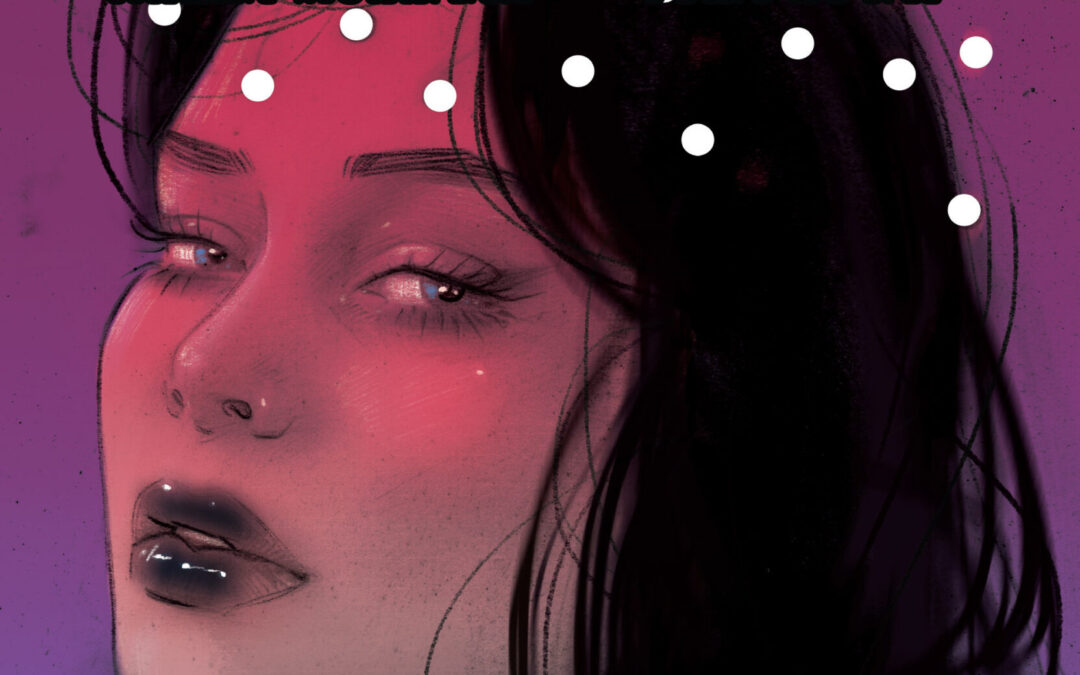
0 Comments